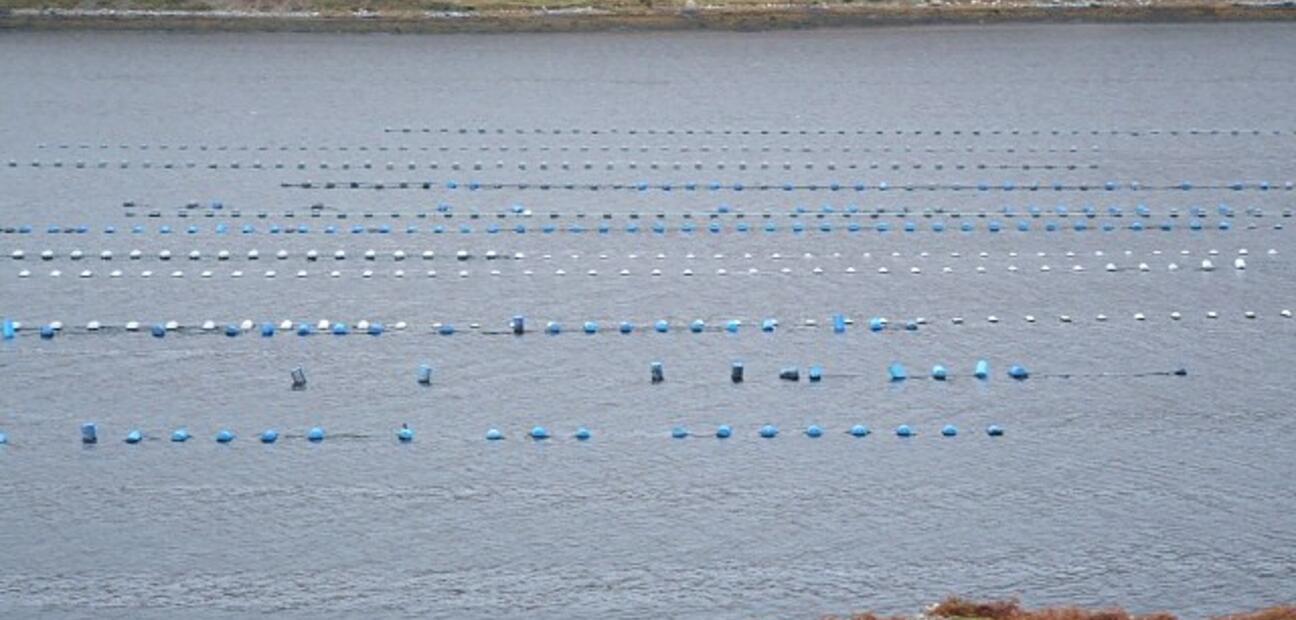
Finding a sustainable balance between resource development activities, marine ecosystems and the biodiversity they host is a key challenge facing decision makers (DAFM) and government advisors (MI). Ecological Carrying Capacity (ECC) refers to the capacity of an ecosystem to sustain a certain level of anthropogenic activity such that the balance of ecosystem dynamics is acceptable and sustainable. The ECC concept was borne out of the need for the ecosystem approach to the sustainable management of marine biodiversity and resources to be adopted under a number of international conventions.
ECC as a concept has largely been developed within the aquaculture sector internationally and is being increasingly employed as a tool to support decision makers in other jurisdictions. ECC is a multidisciplinary modelling approach that models the change in natural physical, chemical and biological processes of an ecosystem in response to the cultivation of one or more species. The carrying capacity of ecosystems will vary between waterbodies and part of the challenge facing efforts to develop ECC models is to make them broadly applicable as well as site specific.
The aquaculture sector in Ireland is going through a period of growth which is set to continue for the coming years and the MI is a key advisor to DAFM on aquaculture licensing under the Fisheries (amendment) Act and associated regulations and under article 6(3) of the HD in providing advice in support of Appropriate Assessments and review of aquaculture license applications. There is a need for a holistic ecosystem based tool for defining boundaries for aquaculture development within a waterbody, so that it’s ecosystem function and the biodiversity it supports can be sustainably managed. ECC modelling has significant potential to meet this need.
The key objectives of this project are to:
- Initially develop a cost effective broadly applicable ECC model for shellfish cultivation in Ireland as there has been continued development in this sector in Natura 2000 sites in recent years;
- Draw on as much pre-existing publicly available data as possible when building this model so as to increase the models utility in and transferability between waterbodies in Ireland;
- Undertake proof of concept studies in Natura 2000 sites in Ireland in the context of a risk assessment of an aquaculture license application scenario;
- To scope the potential for this model or similar models to be developed to take multiple cultured species into account including finfish as this sector is set to go through significant expansion over the next five years.
- An ECC model would enable the MI to provide advice to DAFM on the ECC of waterbodies, in relation to aquaculture licensing under the Fisheries Amendment Act (1997), which contain protected habitats and the habitats of protected species under Natura 2000 and to provide advice on the ECC of other waterbodies for the purpose of sustainably managing biodiversity in these areas.
- Immediate benefits will be realised by the MI in its advisory role as efforts will be strategically focussed in Natura 2000 sites that contain high levels of shellfish aquaculture or that are subject to high volumes of current and/or upcoming shellfish aquaculture licence applications.
- Other benefits of this project would be realised by the MI in its fulfilment of reporting on GES on for the following descriptors:
- Descriptor 1: Biodiversity - because the purpose of the ECC approach is to advise on the capacity of an ecosystem to support anthropogenic activities in a way that will maintain or improve biodiversity and ecosystem function;
- Descriptor 4: Food Webs – because a large part of ECC modelling related to cultured species can focus on their interaction with different trophic levels such as plankton, the benthic environment, wild fish populations and the potential outcomes of these interactions.
This project will run for 2 years in 2024 and 2025
- Model developed for assessing ECC in relation to shellfish aquaculture in Natura 2000 sites and more broadly;
- Report/ Publication: Proof of concept study in Natura 2000 sites in the context of a risk assessment of an aquaculture license application scenario;
- Estimation of ECC in relation to shellfish aquaculture for a number of key Natura 2000 sites around Ireland;
- Incorporation ECC model outputs for shellfish culture incorporated into advice provided to DAFM in support of Appropriate Assessment.
Email: Francis.XOBeirn@Marine.ie